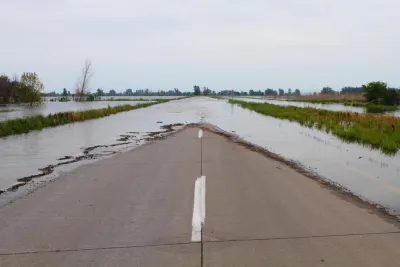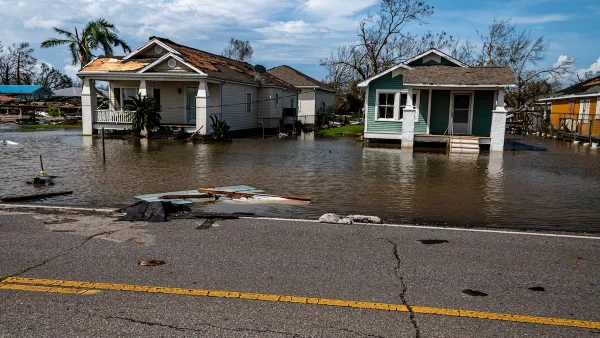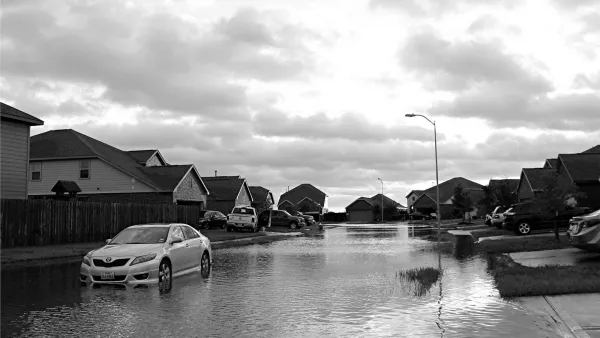The lack of disclosure laws in most states has led to an overvaluation of homes located in floodplains across the country.

Many American homeowners "remain unaware of the risks their properties face" because most states have nonexistent or inadequate flood risk disclosure laws, writes Jena Brooker for Grist. "This lack of transparency has created a false real estate market in parts of the U.S., according to new research from Stanford University and the University of North Carolina at Chapel Hill. The study, published in the journal Proceedings of the National Academies of Sciences, found there are almost 4 million single-family homes located in floodplains nationwide that collectively are overvalued by $44 billion based on their flood risk, or an average $11,526 per house."
Because land in floodplains is often cheaper, this disproportionately affects low-income families. "If you’re a household that invested a lot of money into a home in one of these places, we would be extremely concerned about the possibility of that home’s value dropping a lot and really wiping out a lot of wealth in communities that are vulnerable to begin with," says Miyuki Hino, lead author of the study and a professor at the University of North Carolina Chapel Hill. "Of the 10 states most at risk of severe flooding in the next 100 years, just three have flood risk disclosure laws — North Carolina, California, and Louisiana, according to data from the Natural Resources Defense Council."
"The scientists argue their new research isn’t just useful for studying flooding, but can also be applied to other climate change-related disasters that affect housing, including wildfires."
FULL STORY: Is your home in a flood-prone zone? In most states, you won’t find out until after you buy.

National Parks Layoffs Will Cause Communities to Lose Billions
Thousands of essential park workers were laid off this week, just before the busy spring break season.

Retro-silient?: America’s First “Eco-burb,” The Woodlands Turns 50
A master-planned community north of Houston offers lessons on green infrastructure and resilient design, but falls short of its founder’s lofty affordability and walkability goals.

Delivering for America Plan Will Downgrade Mail Service in at Least 49.5 Percent of Zip Codes
Republican and Democrat lawmakers criticize the plan for its disproportionate negative impact on rural communities.

Test News Post 1
This is a summary

Test News Headline 46
Test for the image on the front page.

Balancing Bombs and Butterflies: How the National Guard Protects a Rare Species
The National Guard at Fort Indiantown Gap uses GIS technology and land management strategies to balance military training with conservation efforts, ensuring the survival of the rare eastern regal fritillary butterfly.
Urban Design for Planners 1: Software Tools
This six-course series explores essential urban design concepts using open source software and equips planners with the tools they need to participate fully in the urban design process.
Planning for Universal Design
Learn the tools for implementing Universal Design in planning regulations.
EMC Planning Group, Inc.
Planetizen
Planetizen
Mpact (formerly Rail~Volution)
Great Falls Development Authority, Inc.
HUDs Office of Policy Development and Research
NYU Wagner Graduate School of Public Service




























